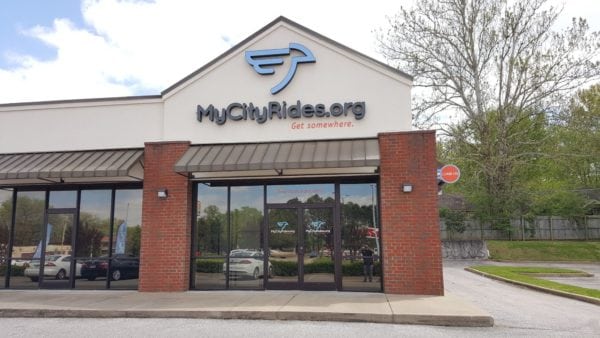Response-ability and account-ability
 Business owners ultimately possess the responsibility and accountability for the growth and success of their businesses. However, owners are often akin to the great and powerful Oz behind the curtain, whereas employees are the exposed faces confronted by customers, vendors and distributors on a daily basis. Owners need to be aware of and remedy the lack of control bestowed to supervisors and staff regarding responsibility and accountability. That is, if employees are to be held accountable for actions of the business owner, these folks must also have the ability to respond to and have some degree of control over such actions. Once managers and staff are held accountable for things beyond their control, frustration and dissatisfaction increase and employee turnover rates tend to be high. Likewise, dealership owners who allow employees to make decisions and control company actions, need to also hold these individuals responsible and accountable for outcomes. A healthy balance of power within a job role needs to be achieved for greater prosperity.
Business owners ultimately possess the responsibility and accountability for the growth and success of their businesses. However, owners are often akin to the great and powerful Oz behind the curtain, whereas employees are the exposed faces confronted by customers, vendors and distributors on a daily basis. Owners need to be aware of and remedy the lack of control bestowed to supervisors and staff regarding responsibility and accountability. That is, if employees are to be held accountable for actions of the business owner, these folks must also have the ability to respond to and have some degree of control over such actions. Once managers and staff are held accountable for things beyond their control, frustration and dissatisfaction increase and employee turnover rates tend to be high. Likewise, dealership owners who allow employees to make decisions and control company actions, need to also hold these individuals responsible and accountable for outcomes. A healthy balance of power within a job role needs to be achieved for greater prosperity.
Account-ability without response-ability
Accountability cannot exist without responsibility for control. How can an employee be blamed or punished for things outside of their responsibility and control? When a dealership is run remotely, such as in many multi-store operations (where decisions are made in a corporate office), or business is conducted without considering the needs of an individual dealership or department (owner micro-managing), stress for employees is inevitable. There is perhaps nothing more taxing and tense for a manager and staff than being held accountable for decisions and actions made at a corporate or owner level that limits their ability to control the very things for which they are responsible. For example, when a large shipment of accessories arrives at the dealership due to a purchase from the main office — without the knowledge or input of the department manager. He or she is now held accountable to move it – even if it is not a good fit for the dealership’s customer base. When the employee senses an impossible way to balance their power with a desirable outcome, helplessness and irritation develop and lead to dismissal or resignation. The end result is often continual personnel turnover without improvement to success of the business. Managers and staff need to be properly trained to make decisions to enrich their stores and departments to meet the needs of the customer base and surpass expectations while successfully growing the business.
Response-ability without account-ability
Responsibility without accountability is a dangerous scenario in business. Giving employees the ability to make decisions that affect the dealership without oversight or outcome measurements can yield less than desirable results for the dealership. For example, if managers are ordering products from vendors or distributors with more personable agents (with inferior items) or from those that offer the employee perks (lunches, inventory assessment), rather than products that customers want and those which will turn more company profit, the business will suffer. Most dealership computer systems are capable of generating reports based on sales, profits, margins, and a variety of metrics broken down by department and even by employee. Dealerships run better when these metrics are applied to the employee or manager pay plan. That is, when the business does better (through increased sales, margins and profits), so does the employee. Systems like this can help the dealership avoid employee decisions being made based on what is easy or on personal gain instead of what is most advantageous for the dealership.
Response-ability AND account-ability
Responsibility and accountability should go hand-in-hand in all facets of business. For the dealership to run efficiently and effectively, managers and staff need to be empowered to make decisions for actions for which they are responsible and are in the best position to make. As Steve Jobs is credited for stating, “It doesn’t make sense to hire smart people and tell them what to do; we hire smart people so they can tell us what to do.” In closing, hire good people, train employees to make decisions that are best for the job at hand, implement metrics for measurable results, and reward/punish accordingly. This system of balance between responsibility and accountability will lead to a happier employee and a more profitable dealership.
Scott Hochmuth is the owner of Real Performance Marketing, an Atlanta-based company representing seven different powersports related product lines in the Alabama, Florida, Georgia, Mississippi and Tennessee areas. He comes face-to-face with over 200 dealers every 8 weeks. He has been in sales since 1982 and started in the powersports industry in 1989 as a sales representative for a helmet manufacturer.

